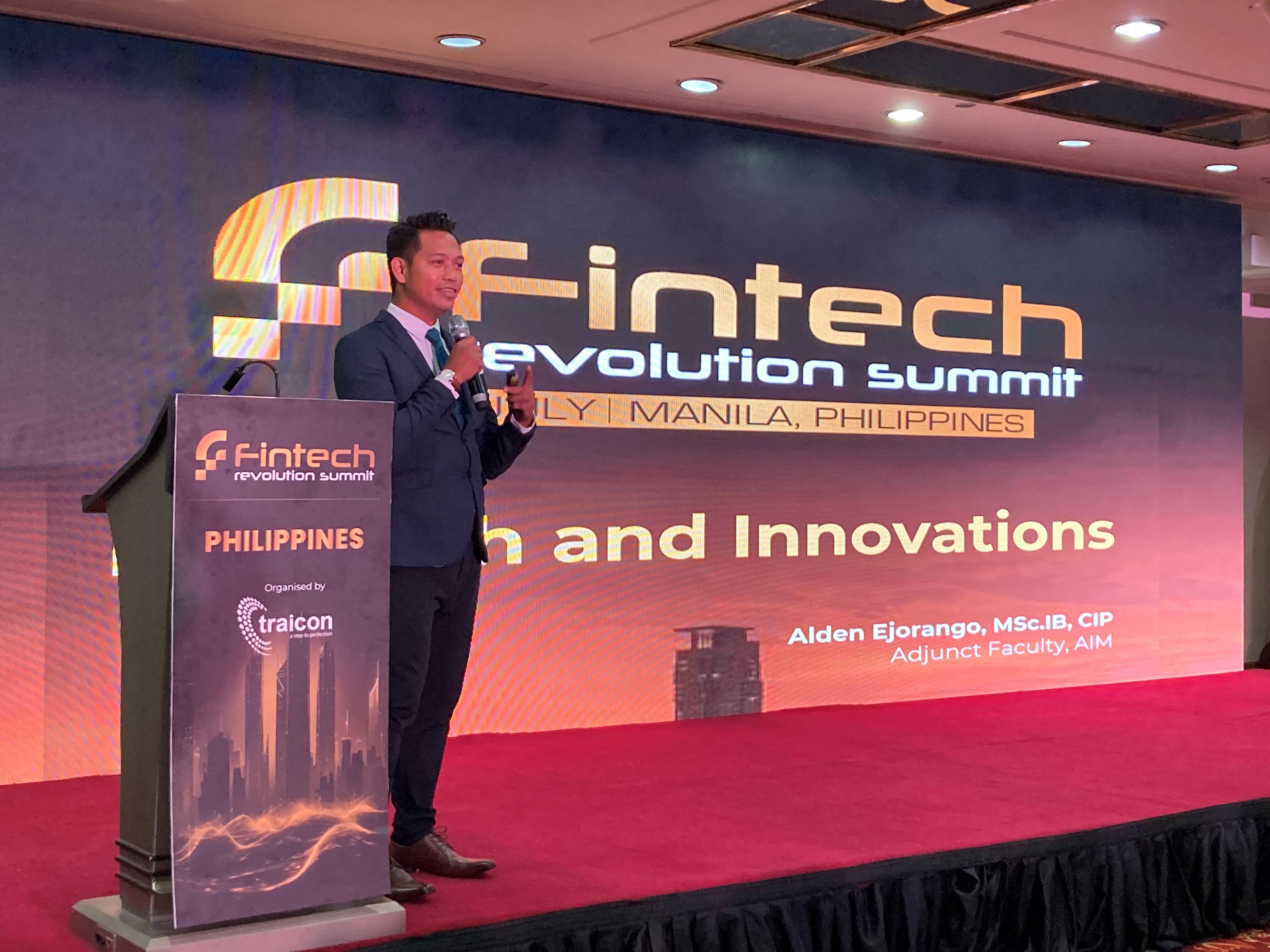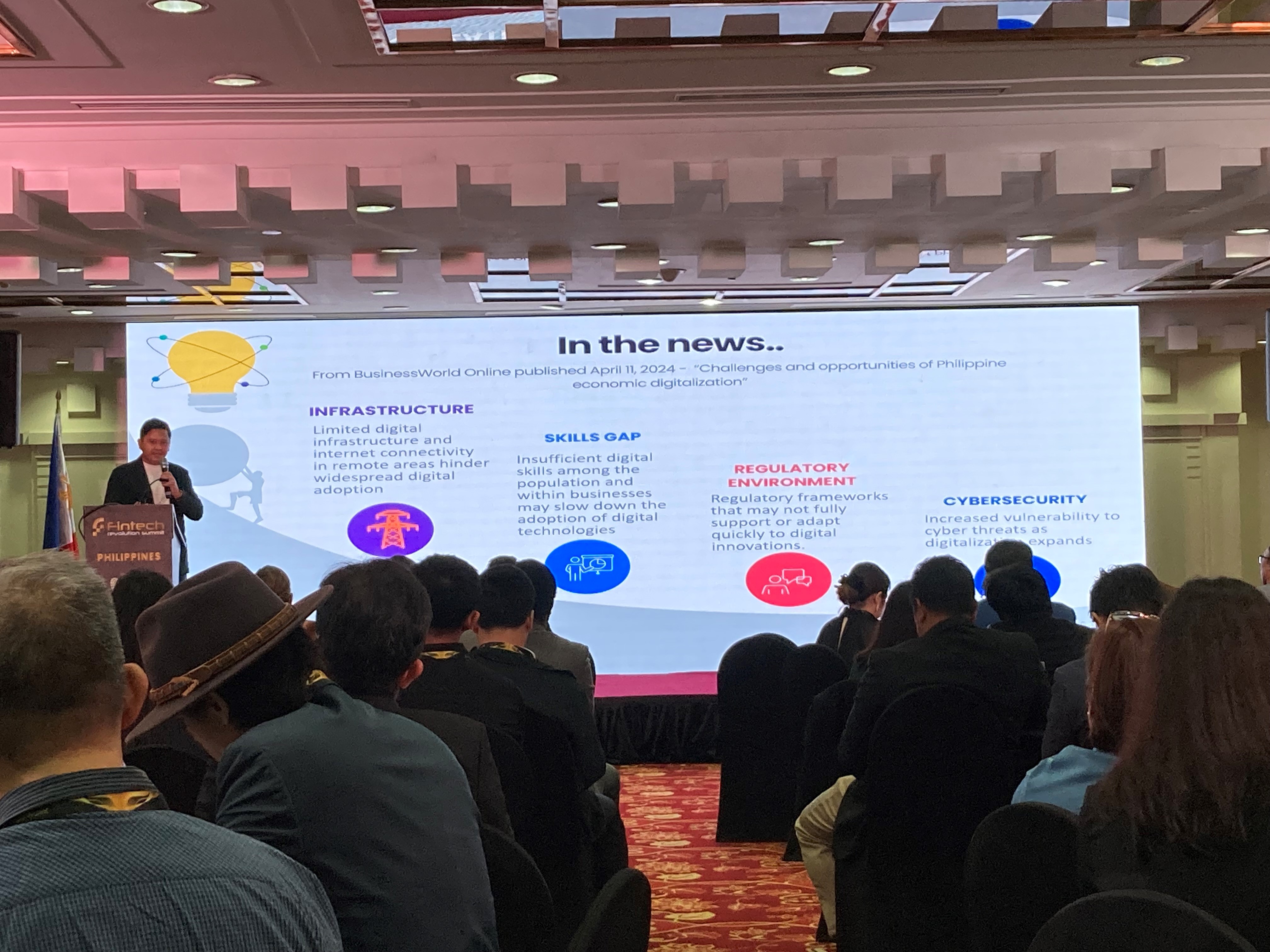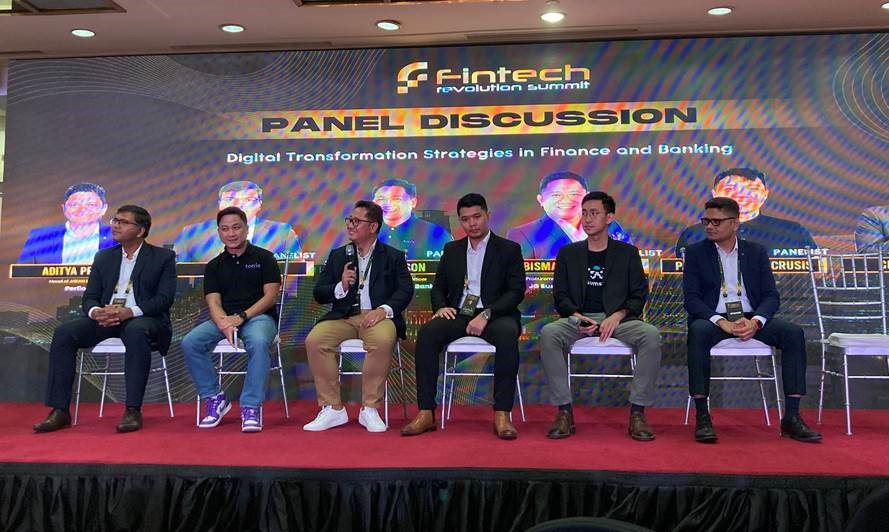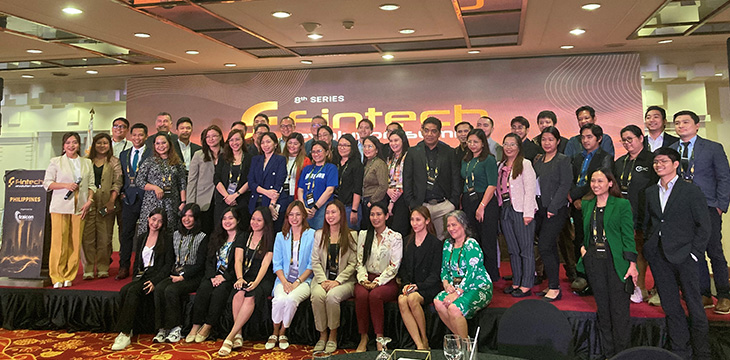|
Getting your Trinity Audio player ready...
|
The Philippines continues to ride the fintech adoption train. In 2023, a FinTech Alliance.ph and Alibaba (NASDAQ: BABA) report detailed that the developing country is well on its way to achieving the Bangko Sentral ng Pilipinas’ (BSP) target of digitalizing 50% of the country’s financial payment transactions.
This proved to be true in 2024, as more companies are gaining traction in Southeast Asia. Last year, Traicon Events hosted its first Fintech Revolution Summit at the New Coast Hotel in Manila. The two-day conference garnered support from finance leaders across the globe, paving the way for blockchain and AI to lead innovation across traditional and digital banks.
After some successful international Fintech Revolution Summits, Traicon returned to Manila in 2024 to host another conference, acknowledging that the Philippines is on its way to becoming the next digital frontier in Asia.
And that's a wrap for the 8th Fintech Revolution Summit! 🚀 We hope na nadagdagan ang knowledge n'yo about #Web3, #digitalbanking, #fintech, and #AI.
Kitakits ulit tayo sa next #FintechRevolutionSummit!🗓️ pic.twitter.com/I5Gj17fnO4
— CoinGeek Philippines (@RealCoinGeek_PH) July 12, 2024
Will Manila be the next financial hub?
The Heritage Hotel’s conference room in Pasay was jampacked on July 12, with various delegates from the government, central banks and foreign and commercial banks all eager to see how the Philippines continues to develop as a financial hub.
Alden Ray Ejorango, a professor at the Asian Institute of Management, delivered the keynote address that kicked off the 8th edition of the Fintech Revolution Summit. Ejorango, who also works at the BSP as a central banker in its payments supervision and licensing department, remarked that fintech is a highly regulated industry and that compliance is a significant challenge.

“Regulations are continuously being improved, which drive the fintech ecosystem,” he said.
“Some of the [regulations are implemented in] digital transformation initiatives, financial inclusion, CBDC, open banking, and regulatory sandboxes… In short, continued advances are being made to improve the existing innovations.”
“I’m sure a lot of you will agree that fintech brought many changes in how we do things,” Ejorango pointed out.
In summary, the Asian Institute of Management professor and former central banker conveyed that strengthening cyber reliance, exploring fintech innovations and upskilling and reskilling the workforce about various financial developments will vastly help the Philippines’ finance market.
How can digital transformation revolutionize fintech?
The Philippines has always been heavily paper-reliant. In fact, unlike in Western countries where digital payments and digitalization of various transactions are fully implemented in their systems, the Philippines—after the effects of COVID-19—has just now acknowledged the importance of digitizing. Unfortunately, many transactions, such as transportation fees and government processes, are still paper-based.
During the pre-lunch sessions of the Fintech Revolution Summit in Manila, Canon Marketing Philippines’ Head of Business Allan Hebron discussed the advantages of digitalizing documents. Canon (NASDAQ: CAJFF) is more commonly known in the country as a company offering print, scanners and camera equipment. However, as Hebron noted, the globally famous firm also provides software solutions and services.

“[Canon’s] solutions are geared towards digital transformation,” Hebron said, adding that a few of what they’re working on is documents and data management.
Sourcing news published by Business World in April 2024, Hebron highlighted the challenges and opportunities in digital transformation. The challenges, he said, are in cybersecurity and regulatory compliance, while the opportunities are economic growth, financial inclusion and job creation.
However, according to Canon’s data, Hebron shared that 48% of banking institutions are still trying to catch up with digitalization. “We would like to help that 48%. At Canon, we have our digitization services, and we can help you with your bank files, we can do scanning, we can get the data, and we can help build your document management system,” Hebron encouraged the audience.
What are the steps to take to advance financial technology?
Building on the momentum of digital transformation initiatives mentioned in previous keynote speeches and presentations at the summit, a panel discussion delved deeper into the strategies digital banks and traditional finance leaders can implement to enhance financial management. The panel discussion featured Gaurav Jain of HyperVerge, Aditya Prasad of Perfios, Edmon Joson of Tonik Digital Bank, Bismarck Orbe of JG Summit Holdings, Paul Ivan Villacrusis of ManageEngine and Chuan Wee Lye of Sumsub.

Starting the discussion is a question for Prasad about the cruciality of digital transformation in the ASEAN region. Prasad was quick to point out that digital transformation has always been necessary in the ASEAN and banking sectors. He shared that at Perfios, one aspect that they examine closely is their customers’ data encoding and management.
“[Data management] is very critical in the current sense because if you don’t do it, somebody else will. And [if] somebody does it, you’re basically just playing catch up,” he noted.
Jumping ahead on banking, the CPO of Tonik Digital Bank, Joson, says that what they do with their bank is not at all different from traditional banking—the only distinction is that they are bringing banking closer to their customers with mobile phones. Speaking of digital banking, Villacrusis sees the transition to modernization as one of the significant struggles in banking.
“To go deep on that, there are companies out there that are still moving from legacy infrastructure to cloud or SaaS-based infrastructure. Probably around 80 – 90% of these organizations have moved to this modernization, but what we found as an issue with them moving to modernization is they had upgraded their systems and been able to maximize the technology, but what happens is that they forget about their workforce,” Villacrusis said citing the main issue lies in manual work that companies often overlook.
“There are so many things happening in the background [when transitioning to digital banks], and everything is happening manually…These are basic problems that we face. Innovation is required right at the root level and not when something is already done. Machine learning, AI is now available,” Aditya remarked. JG Summit Holdings Finance and Procurement Solutions Services Director Orbe added that finance leaders and users must ensure they have the relevant tools in place.
Moving forward with the discussion, Villacrusis was asked how they maintain security in digital banking. He said cybersecurity is vital in any industry, especially for financial organizations. He recommends that these organizations establish a zero-trust framework, ensuring that finance organizations must constantly authenticate the identity of their users.

Aside from the zero trust framework, Villacrusis suggested adding visibility in all assets, monitoring the people who can access them, adding another security layer like 2FAs, Google (NASDAQ: GOOGL) or Microsoft (NASDAQ: MSFT) authentications, removing and adequately organizing privileged access, turning off remote access and installing anti-virus apps. However, the best recommendation, he says, is to have an incident management plan so they can come up with a backup if there’s already a data breach.
“In the digital age, there’s no such thing as a perfect application. That’s why we have developers. Their job is to make the application better. The thing is, vulnerabilities will always come. And what happens if there are vulnerabilities? We patch them, we fix them. That’s why IT operations are important,” he explained.
Apart from the keynote speeches from Ejorango and Hebron, representatives from various companies were also present, such as Ultipa’s Ricky Sun, RCBC’s Axcel Añonuevo, Secuna’s AJ Dummanhug, Megaworld Corporation’s Francis Adrian Viernes, Medtecs International Corporation’s Francisco Ramon and BFSI’s Elross Pangue. Before the summit concludes, Whilczel Canlas, the Asst. Vice President of Roxas Holdings Inc., took the center stage to empower women’s initiatives in the fintech world.
Fintech innovations are truly rising, and we hope to see more developments in the upcoming year as we welcome yet another Fintech Revolution summit in Manila. To learn more about the conference, follow our CoinGeek regional account.
Watch: Web3 is natural progression of technology

 03-03-2026
03-03-2026 




